RESISTANCE CINEMA Presents “HIDDEN BATTLES” VSM productions , a film by VICTORIA MILLS, Produced by HAYLEY DOWNS & KATHY LEICHTER, (2010, 65 minutes)
WHEN: Sunday March, 18, 2012, 1:15 pm
WHERE: Community Church NY Gallery Room, 28 East 35th st. btwn Park & Madison
ADMISSION: Free, donations appreciated
SPECIAL GUEST: Filmmaker VICTORIA MILLS
Human beings are not born to kill other human beings. Normal human beings the world over, regardless of culture, carry inside them a deep inhibition towards killing that can be overwhelmed at times by passion or through some criminal enterprise where a great personal reward is anticipated. But the ability to kill impersonally, coldly without remorse, for no particular personal gain is an ability that must be acquired through training. It is an ability that has no place in a civilized society but is essential for that one exception; a combat soldier in war. What happens to normal human beings that have gone through that experience and then upon their return from war find themselves back in civil society? Can we simply switch on and off our most deeply felt emotions?
HIDDEN BATTLES follows five such human beings in their post-combat lives. It begins in the West Bank. Driving 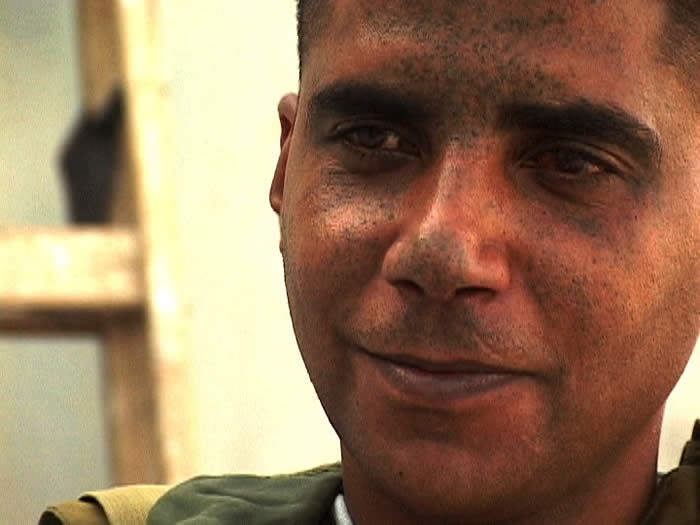 apprehensively through narrow streets, a voice narrates: “I hadn’t killed before… I kept thinking, what am I going to do? Will I be able to pull the trigger?” The voice belongs to Zachariah, leader of the Al Aqsa Martyrs Brigade, who at thirteen was shot four times and lost his family to the Israeli-Palestinian conflict. “We’re almost friends now, Death and I,” he admits calmly. The constant stress of being pursued as one of Israel’s “most wanted” is all-consuming, and causes him to reconsider his involvement in the conflict.
apprehensively through narrow streets, a voice narrates: “I hadn’t killed before… I kept thinking, what am I going to do? Will I be able to pull the trigger?” The voice belongs to Zachariah, leader of the Al Aqsa Martyrs Brigade, who at thirteen was shot four times and lost his family to the Israeli-Palestinian conflict. “We’re almost friends now, Death and I,” he admits calmly. The constant stress of being pursued as one of Israel’s “most wanted” is all-consuming, and causes him to reconsider his involvement in the conflict.
For soldiers there is no clean break between the past of war and the pr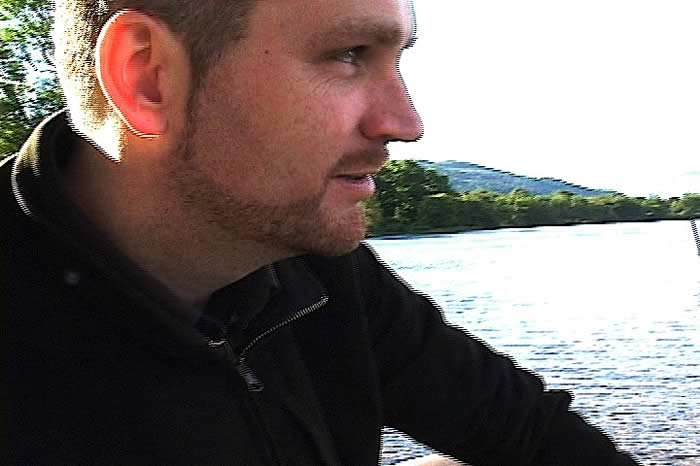 esent. When Aaron, a former Marine, was deployed to Somalia in 1994 as a scout/sniper, “the really cool summer camp he was in, playing soldier, came to a crashing halt.” Aaron promised himself that he wouldn’t kill anyone. But in the midst of constant gunfire, he came face to face with that promise. For years, Aaron kept his experiences to himself, while he was haunted by his memories. He moves from Massachusetts to Scotland with his family in hopes of escaping his past, only to find that he can’t get away.
esent. When Aaron, a former Marine, was deployed to Somalia in 1994 as a scout/sniper, “the really cool summer camp he was in, playing soldier, came to a crashing halt.” Aaron promised himself that he wouldn’t kill anyone. But in the midst of constant gunfire, he came face to face with that promise. For years, Aaron kept his experiences to himself, while he was haunted by his memories. He moves from Massachusetts to Scotland with his family in hopes of escaping his past, only to find that he can’t get away.
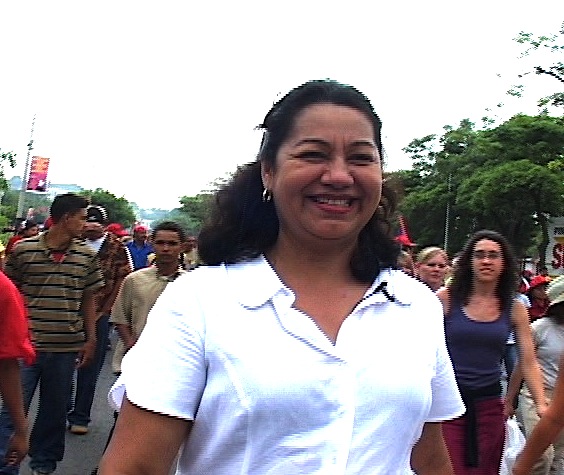 A beautiful housekeeper in New York, Esmeralda also has a history few people know about: thirty-one years ago she made the choice to pick up a gun and join the Sandinista Revolution. Esmeralda returns to Nicaragua, where she faces her past as she revisits her fellow soldiers, the dilapidated school where she trained, and places where she fought. As she does this, repressed memories emerge. As much as she cannot accept having “murdered,” she does realize: “in the moment, if I didn’t kill them, they would kill me.”
A beautiful housekeeper in New York, Esmeralda also has a history few people know about: thirty-one years ago she made the choice to pick up a gun and join the Sandinista Revolution. Esmeralda returns to Nicaragua, where she faces her past as she revisits her fellow soldiers, the dilapidated school where she trained, and places where she fought. As she does this, repressed memories emerge. As much as she cannot accept having “murdered,” she does realize: “in the moment, if I didn’t kill them, they would kill me.”
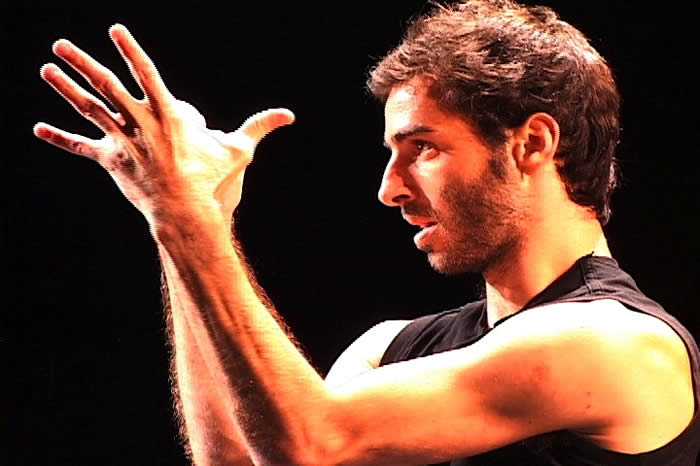
Saar, a successful choreographer, was a Special Forces Officer in the Israeli Army. He returns to his training camp in Israel with an experiment in mind: to apply what he has learned from dance to training the elite unit. He talks at length about the cycle of brainwashing that makes it possible to see a human being as a mere target. Saar speaks of this brainwashing as if it is in the past, but when he picks up a gun and fires, he is overwhelmed by the warrior still inside of him. Ultimately, Saar comes to accept that having killed is a “fact” of his life.
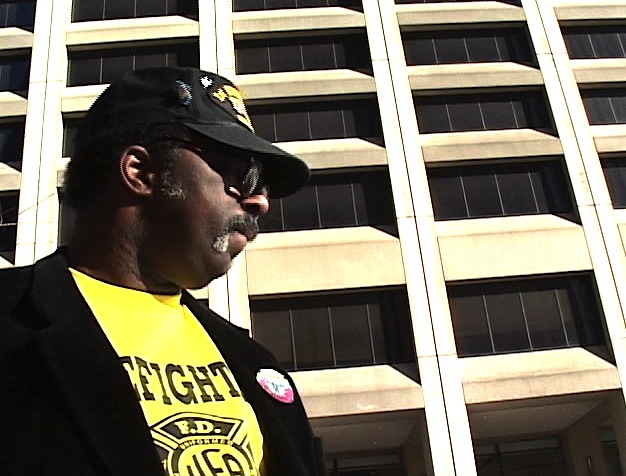 Yet, how do soldiers process such a “fact?” For decades George minimized the emotional impact of having killed in Vietnam. Nevertheless, he recalls that when he first killed, he was gripped by the feeling that he “did something – literally against God.” George recognizes that killing has had a lasting impact, and resolves to do something about it. He works with young veterans, helping them express the psychological wounds of war through artistic outlets.
Yet, how do soldiers process such a “fact?” For decades George minimized the emotional impact of having killed in Vietnam. Nevertheless, he recalls that when he first killed, he was gripped by the feeling that he “did something – literally against God.” George recognizes that killing has had a lasting impact, and resolves to do something about it. He works with young veterans, helping them express the psychological wounds of war through artistic outlets.
Each soldier deals with killing in his or her own unique way. HIDDEN BATTLES shows five ways in which this act is integrated into five different lives. Ultimately these stories testify to the resilience of the human spirit and hopefulness for the future.
 Victoria Mills is an award winning documentary filmmaker as well as a full-time practicing psychoanalyst. Her first film, Mothers and Daughters: Mirrors that Bind, traveled the festival circuit in 2002. In conjunction with the film, she lead workshops with universities, national women’s organizations, and grass-roots community groups. As an analyst with 25 years experience, Victoria has worked extensively with people of different cultures who have experienced trauma, including those who suffered from the disaster of 9/11. She is also is a training analyst and on the faculty of the National Psychological Association for Psychoanalysis, and a member of the International Psychoanalytic Association, Institute for Psychoanalytic Training and Research.
Victoria Mills is an award winning documentary filmmaker as well as a full-time practicing psychoanalyst. Her first film, Mothers and Daughters: Mirrors that Bind, traveled the festival circuit in 2002. In conjunction with the film, she lead workshops with universities, national women’s organizations, and grass-roots community groups. As an analyst with 25 years experience, Victoria has worked extensively with people of different cultures who have experienced trauma, including those who suffered from the disaster of 9/11. She is also is a training analyst and on the faculty of the National Psychological Association for Psychoanalysis, and a member of the International Psychoanalytic Association, Institute for Psychoanalytic Training and Research.